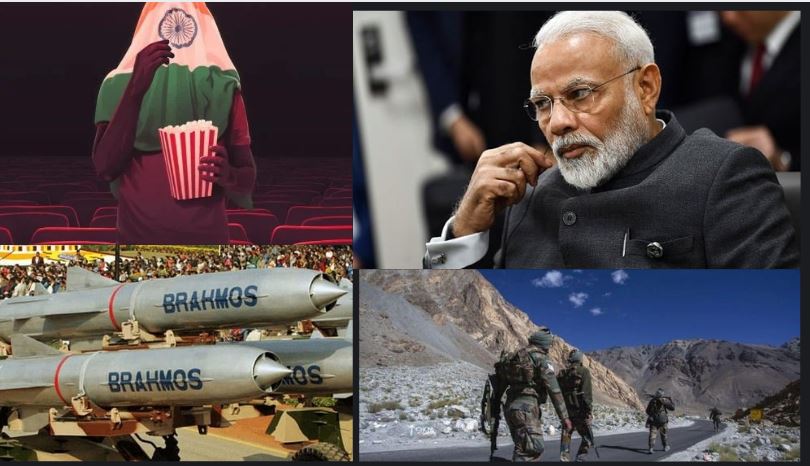The tragic events in Pahalgam, occupied Kashmir—where 26 people reportedly lost their lives—have yet again triggered a knee-jerk reaction from the Indian government. Without a proper investigation, without evidence, and without accountability, fingers were immediately pointed at Pakistan. But this isn’t just lazy statecraft—it’s deliberate political theatre.
This so-called “terrorist attack” fits a pattern far too familiar under Narendra Modi’s tenure. It’s not about national security. It’s about optics. It’s about control. And most disturbingly, it’s about votes. The Pahalgam incident, viewed in the broader political context, appears more like a false flag operation—a manufactured crisis designed to rally a disillusioned public around the flag, stir anti-Pakistan sentiment, and pave the way for yet another election campaign built on fear rather than performance.
Modi is not new to this strategy. From Pulwama to Balakot, his administration has mastered the art of using militant attacks—real or orchestrated—as triggers for a nationalist frenzy. It’s a grim political playbook: engineer outrage, silence dissent, militarize the narrative, and capitalize on the chaos. The Pahalgam incident, tragically, checks every box.
Why now? Because Narendra Modi is running out of cards.
India’s economy is in tatters. Youth unemployment is soaring. Farmer suicides continue with chilling regularity. Inflation is eating into household budgets. States like Manipur, West Bengal, and Punjab simmer with discontent. The northeast remains fragile. And the once-hyped image of “Digital India” is collapsing under the weight of real-life misery. For a regime addicted to image management, this is an existential threat.
In such moments, a foreign enemy becomes a convenient distraction. Pakistan, once again, is cast as the villain—not for what it’s done, but for what New Delhi needs it to be. The emotional manipulation is precise: evoke grief, inject rage, and divert the national conversation away from jobs, justice, and accountability. A government that fails to deliver bread will always offer war drums instead.
But this time, the stakes are higher than ever.
A real military conflict with Pakistan would not only be reckless—it would be catastrophic. India’s already fragile economy would crumble under the weight of sanctions, investor panic, and skyrocketing defense expenditure. The rupee would plummet. Foreign capital would flee. Inflation, already high, would explode. India’s poor and middle class—already reeling from the aftershocks of demonetization, COVID mismanagement, and inflation—would be the first to suffer.
And what of national unity? Modi’s inner circle may chant slogans of “Akhand Bharat,” but the reality on the ground tells a different story. Kashmir remains under siege. Punjab simmers under the weight of farmer protests and separatist undertones. The northeast, despite heavy militarization, remains restless. In such a volatile landscape, a war could tip the internal balance toward an uncontrollable spiral—one of insurgencies, crackdowns, and civil strife.
Ironically, the very foundations of India’s democracy—once seen as its pride—are now being eroded from within. Dissent is criminalized. Journalists are jailed. Social media is censored. The judiciary appears increasingly compromised. The mainstream media has devolved into a government mouthpiece, parroting unverified claims and amplifying hysteria while ignoring the lack of evidence and unanswered questions surrounding incidents like Pahalgam. This is not governance. This is authoritarian theatre.
India doesn’t need another war. It needs leadership rooted in justice, economic reform, and human dignity. It needs answers about how such attacks are allowed to happen under such heavy militarization in Kashmir. It needs to investigate, not fabricate. It needs to hold leaders accountable, not give them blank checks in blood.
But Narendra Modi seems more interested in history books than hospital beds, in borders than bread, in spectacle over substance. His obsession with legacy, power, and dominance may win him headlines today—but it may also cost the region dearly tomorrow.
If India’s leadership continues to play with fire, it must be prepared for the consequences. War is not a political tool. It is a human catastrophe. And the blood it spills cannot be wiped away by press conferences and patriotism.
It’s time to reject the script. The world must see through the smokescreen. India must choose democracy over demagoguery. And Pakistan, while remaining vigilant, must not fall for the bait. Because this isn’t about Pakistan. It’s about Modi’s war with the truth.



